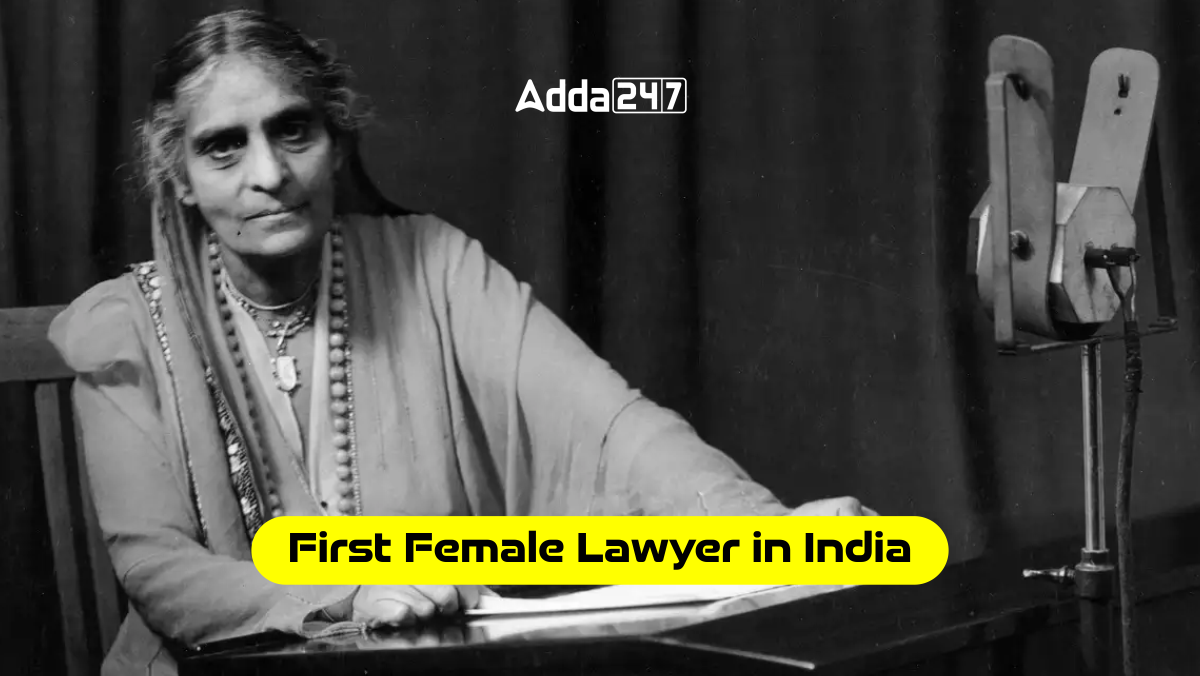The first female lawyer in India made history by breaking barriers in the legal profession, a field once dominated by men. Her courage, intelligence and determination helped her achieve this remarkable milestone. She paved the way for many women to pursue law and fight for justice. Her legacy continues to inspire aspiring female lawyers, proving that women can excel in the legal world.
First Female Lawyer in India
Cornelia Sorabji emerged as a trailblazer in the spheres of women’s empowerment, legal advocacy and social reform in India. Defying the strict gender norms of the late 19th and 20th centuries, she achieved the notable feat of becoming first female lawyer of India. Her steadfast dedication to education and relentless advocacy for the rights of marginalized women left a lasting impact on the legal and societal landscape in India.
Early Life and Education of Cornelia Sorabji
Birth date; 15th November 1866
Birth place: Nashik, India
Cornelia Sorabji was born into a progressive and education-focused family. Her father, Reverend Sorabji Karsedji, had converted from Zoroastrianism to Christianity and was a Christian missionary. Her mother, Francina Ford, was deeply committed to girl’s education and social welfare. Sorabji grew up in Belgaum and Pune, where he received her early education. She later enrolled in Deccan College, becoming its first female student.
| Other Important Articles | |
| First Females in India | First Female Train Driver |
| First Female Doctor in India | First Female Finance Minister of India |
Academic Career of Cornelia Sorabji
Sorabji’s academic achievements were remarkable. She graduated from Bombay University as the first Indian woman, earning a first-class degree in literature. Despite her academic prowess, she faced gender-based obstacles when seeking a government scholarship for further studies in England. Undaunted, Sorabji embarked on a journey that would make her a symbol of resilience and determination.
Legal Career
- In 1889, Sorabji travelled to England to pursue higher education, where she found support from individuals like Adelaide Manning and Mary Hobhouse.
- In 1892, she made history by becoming the first woman to take Bachelor of Civil Law exam at Somerville College, Oxford.the post-graduate
- Sorabji also gained access to the Codrington Library of All Souls College, Oxford, becoming the first women to do so.
- Returning to India in 1894, Sorabji committed herself to advocating for purdahnashins, secluded women who lacked legal representation.
- Recognizing the significance of professional recognition, she successfully passed the LLB examination of Bombay University in 1897.
- In 1899, Sorabji furthered her legal qualifications by passing the pleader’s examination of Allahabad High Court.
- Despite her accomplishments, she was officially recognized as India’s first female advocate in 1923 when the law prohibiting women from practising law was amended.
- Sorabji’s legal career focused on tirelessly representing women and orphans in provincial courts.
- She frequently provided legal assistance pro bono and worked in regions such as Bengal, Bihar, Orissa and Assam.
Social and Reform Work
Cornelia Sorabji was not just a legal pioneer; she was deeply committed to social reform and women’s empowerment. Her approach to social change was cautious, emphasizing the importance of education from all women, believing that political reform alone would not suffice until women were educated.
Sorabji’s involvement extended to various social service organizations, including the National Council for Women in India, the Federation of University Women and the Bengal League of Social Service for Women. While she initially supported the campaign for Indian independence, her views were shifted by the late 1920s and she actively promoted support for the British Empire.
Publications of Cornelia Sorabji
In addition to her legal and social work, Sorabji was a prolific writer. She authored numerous books, short stories and articles, addressing topics ranging from child welfare to Indian tales and women’s experiences. Some of her notable publications include “Love and Life beyond the Purdah” (1901), “Sun-Babies: Studies in the Child-life of India” (1904) and “India Calling: The Memories of Cornelia Sorabji” (1934).



 Which District is known as the Medical C...
Which District is known as the Medical C...
 Which was the First Women's University i...
Which was the First Women's University i...
 L&T Vyoma to Study 250 MW Green AI D...
L&T Vyoma to Study 250 MW Green AI D...








